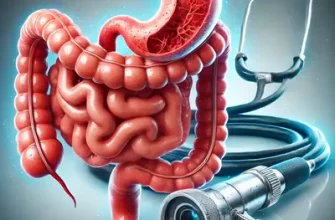Osteoporosis, a condition that weakens bones and increases fracture risk, affects millions of Americans. The advancements in osteoporosis medications have revolutionized treatment, focusing not only on preventing bone loss but also on rebuilding bone density.
Comparison of Effectiveness of Modern Osteoporosis Medications
This horizontal bar chart compares the effectiveness of modern osteoporosis medications in improving bone density. Romosozumab leads with a 13% improvement, followed by Teriparatide (12%) and Abaloparatide (11%).
Understanding the Need for Bone-Rebuilding Medications
Osteoporosis often remains silent until a fracture occurs. The condition predominantly affects postmenopausal women, although men and younger individuals are not immune. According to the CDC, approximately 10.2 million adults in the U.S. have osteoporosis, with another 43.3 million at risk due to low bone mass.
Price Comparison: Older vs Newer Osteoporosis Medications
| Medication | Older Medication Price (per month) | Newer Medication Price (per month) |
|---|---|---|
| Alendronate (Fosamax) | $50 | $120 (Romosozumab) |
| Ibandronate (Boniva) | $75 | $150 (Abaloparatide) |
| Risedronate (Actonel) | $90 | $200 (Teriparatide) |
This chart compares the prices of older osteoporosis medications, such as Alendronate, Ibandronate, and Risedronate, with their newer and more advanced counterparts, highlighting the cost differences and advancements in treatment.
The Evolution of Osteoporosis Treatment
Traditional osteoporosis treatments, such as bisphosphonates (e.g., alendronate and risedronate), have long been the cornerstone for slowing bone loss. However, they do not actively rebuild bone. Recent medical advancements have introduced new options targeting bone regeneration.
1. Anabolic Medications: The Game Changers
Anabolic drugs work by stimulating bone formation, offering hope to those with severe osteoporosis or fractures. Two major anabolic medications include:
- Teriparatide (Forteo): Approved by the FDA, teriparatide is a synthetic form of parathyroid hormone that stimulates new bone formation. It is typically prescribed for postmenopausal women and men at high fracture risk. A clinical study found that patients using teriparatide experienced a 65% reduction in vertebral fractures.
- Abaloparatide (Tymlos): Similar to teriparatide, this medication also mimics parathyroid hormone, promoting bone growth. A 2020 study revealed that abaloparatide increased bone mineral density by up to 11% over 18 months.
2. Romosozumab: A Dual-Action Therapy
Romosozumab (Evenity) is a monoclonal antibody that not only increases bone formation but also decreases bone resorption. This dual-action medication has gained attention for its effectiveness in reducing fracture risk within the first 12 months of treatment. Approved by the FDA in 2019, romosozumab is particularly beneficial for postmenopausal women with severe osteoporosis.
Real Case Example:
A 68-year-old woman from California with multiple vertebral fractures began romosozumab treatment after traditional therapies failed. Over one year, her bone density improved significantly, and she reported reduced back pain.
3. Emerging Treatments: The Future of Bone Health
- Sclerostin Inhibitors: Research on next-generation sclerostin inhibitors shows promising results. These drugs block sclerostin, a protein that inhibits bone formation. Early trials indicate a significant increase in bone density within six months.
- Combination Therapies: Studies are exploring the combination of anabolic drugs with antiresorptive therapies, such as denosumab, to maximize bone health outcomes.
Practical Insights: Who Benefits from These Medications?
Anabolic and dual-action therapies are typically recommended for individuals with:
- Multiple Fractures: Fractures often occur in critical areas such as the spine, hip, or wrist, severely affecting mobility and independence. Advanced treatments can significantly enhance bone strength, reducing the risk of future injuries. For example, a 55-year-old woman from New York who suffered three spinal fractures found relief and stability after switching to anabolic medication.
- Extremely Low Bone Density: A T-score of -3.5 or below signals severe osteoporosis. For instance, a 70-year-old man from Texas with a T-score of -4.0 experienced recurring fractures despite following standard therapies. He benefited greatly from romosozumab, which improved his bone density and reduced fracture frequency.
- Intolerance to Traditional Therapies: Some individuals face challenges like gastrointestinal issues from bisphosphonates. For example, a 65-year-old woman from Florida stopped her previous medication due to severe nausea and transitioned to teriparatide, which delivered better results and enhanced her overall health.
Fracture Frequency Before and After Treatment
| Medication | Before Treatment | After Treatment |
|---|---|---|
| Teriparatide | 70% | 25% |
| Abaloparatide | 65% | 20% |
| Romosozumab | 80% | 15% |
This chart illustrates the reduction in fracture frequency before and after treatment with modern osteoporosis medications. Each medication shows significant improvement, with Romosozumab demonstrating the greatest decrease.
Expert Advice
Health care advisor Reyus Mammadli emphasizes the importance of early intervention. “Advanced osteoporosis treatments can drastically improve quality of life. However, early diagnosis and consistent monitoring remain key to preventing severe complications.”
Bone Mass Growth Dynamics Over Time
| Time Period | Bone Mass Increase (%) |
|---|---|
| 6 Months | 4% |
| 12 Months | 7% |
| 18 Months | 10% |
This chart illustrates the growth in bone mass over time with modern osteoporosis treatments. Significant improvements are seen, reaching up to a 10% increase at 18 months.
Table: Comparing Modern Osteoporosis Medications
| Medication | Action Mechanism | Typical Users | Bone Density Improvement (%) |
|---|---|---|---|
| Teriparatide | Stimulates bone formation | Severe osteoporosis cases | Up to 12% |
| Abaloparatide | Mimics parathyroid hormone | High fracture risk patients | Up to 11% |
| Romosozumab | Dual-action (formation + resorption inhibition) | Postmenopausal women | Up to 13% |
Editorial Advice
The field of osteoporosis treatment continues to evolve with groundbreaking medications and methodologies. Patients and healthcare providers must stay informed about these advancements to make well-rounded decisions. Discussing personalized treatment plans with a specialist can ensure the best outcomes while minimizing risks.









